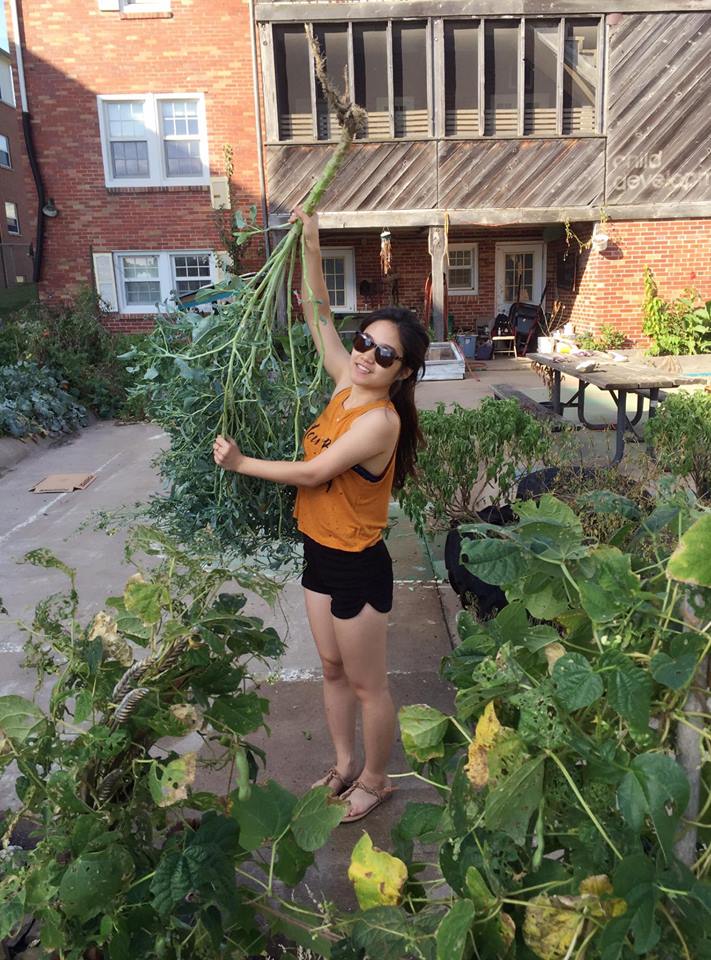On-Campus Dining Services
With the help of our food provider Sodexo, Truman State University has been able to continually innovate and work on our dining impact. By giving students more options, reusing materials, and buying locally, we know we are headed toward a more sustainable future.
Food and Beverage Purchasing
A big difference Truman has made in recent years is a stronger commitment to buying locally produced foods. The University Farm also sells a percentage of its crops to Truman’s dining halls for consumption, and additionally, Sodexo’s suppliers out of Des Moines, IA and Olathe, KS ensure a large supply of local products from producers that follow the Guidelines for Good Agricultural Practices and Good Handling Practices.
During the summer and fall of 2016, the Truman State University Farm hired two Farm-to-Table Vegetable Production Interns to grow, maintain, and market local produce directly to students through the “Market on the Mall” program. Much of the food was marketed directly to students on the mall, but a percentage was also sold directly to Sodexo to be served in the dining halls.
Low Impact Dining
Truman State and Sodexo realize the importance of controlling the impact that our dining has. Here are a few examples of our strides:
- We practice trayless dining in all of the dining halls.
- We offer strong vegan options, including a fully stocked salad bar that is open at every mealtime.
- Our napkins are made with 100% recycled content.
- We have a reusable mug program, one of which every incoming freshman receives for free at the start of their Truman career. Students using their mugs receive a discount on their drink purchase.
- Sodexo also sells reusable containers as part of their Green Box program for a one-time cost of $5. On return trips to the dining hall, used Green Boxes can be exchanged with the cashier for a clean container or for a token to be used at a later date.
- Perishable food is donated over breaks from classes to local nursery homes and food depots.
- Compost is taken from all three residence dining halls and the Student Union Building.
- We also support Meatless Monday and No-Fry Fridays to help reduce our impact.
- We employ sustainable hygiene options, including a floor cleaner that does not require soap.
 Local Food Resources
Local Food Resources
While living in Kirksville, many Truman students decide to buy produce from local farmers in order to help stimulate the local economy and reduce their environmental footprint. The weekly Kiwanis Farmers Market is a gathering of local farmers in the town square where they sell their produce to anyone interested. You can stop by the Kirksville Farmers Market on Saturdays from May to October and support local sustainable food systems! Buying locally reduces dependency on food sources with large carbon footprints that have to be shipped and processed. Some students even contact the farmers directly so they may continue to get produce during the wintertime. If you are interested in being in contact with local farmers in order to buy produce directly from them, we recommend you first connect with them at the Kiwanis Farmers Market. The following list is a comprehensive directory of the local farmers many Truman students choose to purchase produce from during the weekly Kiwanis Farmer’s Market. Some students even contact the farmers directly so they may continue to get produce during the wintertime.